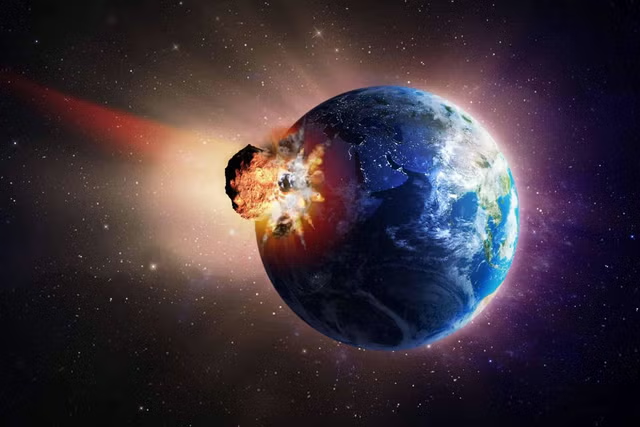New Delhi: In a startling new revelation, a study published in the scientific journal Icarus suggests that our Solar System might be far more vulnerable than previously believed. The research highlights that a passing star — especially one similar in mass to our Sun — could pose a serious threat to Earth and other planets, raising fundamental questions about the long-term stability of our cosmic neighborhood.
What Does the Study Say?
The research, based on thousands of computer simulations, indicates that if a star passes within 10,000 astronomical units (AU) of our Solar System, its gravitational pull could disturb the delicate orbital balance of planets, moons, and other celestial bodies — especially in the outer edges of the system like the Oort Cloud.
Such disruptions, although extremely rare, cannot be ruled out, the study cautions.
Potential Consequences for Earth and Other Planets
According to the study, a passing star could have far-reaching effects:
-
Mercury, the closest planet to the Sun, could see its orbit destabilized with a 50–80% increased chance of orbital chaos.
-
Mars faces a 0.3% chance of being knocked out of its orbit and colliding with another celestial body.
The Earth, however, could suffer even more catastrophic outcomes:
-
A 0.2% chance of colliding with another planet.

-
Possibility of being thrown into the Sun, resulting in total destruction by incineration.
-
Alternatively, Earth could be ejected into deep space, transforming into a frozen, lifeless rock.
Why It Matters
While the chances of such a star passing dangerously close are minimal — possibly once every few million years — the study underscores the fragile nature of our planetary system. Until now, such cosmic threats were largely considered theoretical or irrelevant on human timescales.
But as lead scientists point out, the potential of an external star destabilizing orbits makes a strong case for vigilant monitoring of stellar movement in our galaxy.
Final Thought
Although we may not face immediate danger, this research serves as a sobering reminder of the unpredictable nature of the universe. It emphasizes that our planet’s fate isn’t only tied to earthly matters or internal solar dynamics but also to events light-years away, quietly drifting through the galaxy.
The study offers a compelling reason for continued astronomical observation and investment in space research — because in the vast theater of the cosmos, even the subtlest movement can rewrite the script.










